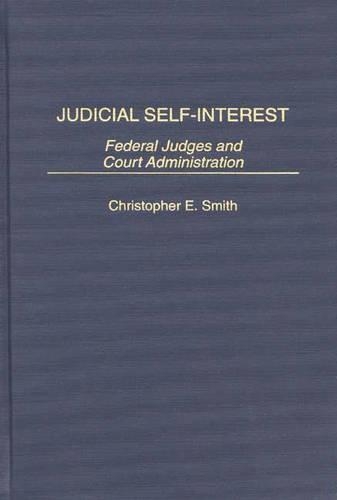
Judicial Self-Interest: Federal Judges and Court Administration
(Hardback)
Publishing Details
Judicial Self-Interest: Federal Judges and Court Administration
By (Author) Christopher Smith
Bloomsbury Publishing PLC
Praeger Publishers Inc
19th May 1995
United States
Classifications
Tertiary Education
Non Fiction
Private or civil law: general
Legal systems: courts and procedures
Pressure groups, protest movements and non-violent action
347.3072
Physical Properties
Hardback
160
Description
This book examines the federal judiciary in light of political science research on the role of interests and interest groups in the making of public policy. The author finds that efforts of federal judges to shape court administration are guided, in part, by self-interest which consequently affects the development and results of judicial policies. He argues that we must recognize judges as self-interested political actors whose motivation and behavior patterns are comparable to other political and administrative actors. By examining the actions of federal judges on a series of illustrative issuescivil justice reform, judicial salaries, habeas corpus reform, and judicial bureaucratizationthe book illuminates the ways in which the judges' self-interested actions affect the courts and society. Judicial self-interest is not portrayed here as bad or even unexpected, but as a motivational factor of significance for government, law, and society that should be recognized and harnessed appropriately.
Author Bio
CHRISTOPHER E. SMITH is Associate Professor in the School of Criminal Justice at Michigan State University. He is the author of 11 books, including Justice Antonin Scalia and the Supreme Court's Conservative Moment (Praeger, 1993) and Critical Judicial Nominations and Political Change (Praeger, 1993).
